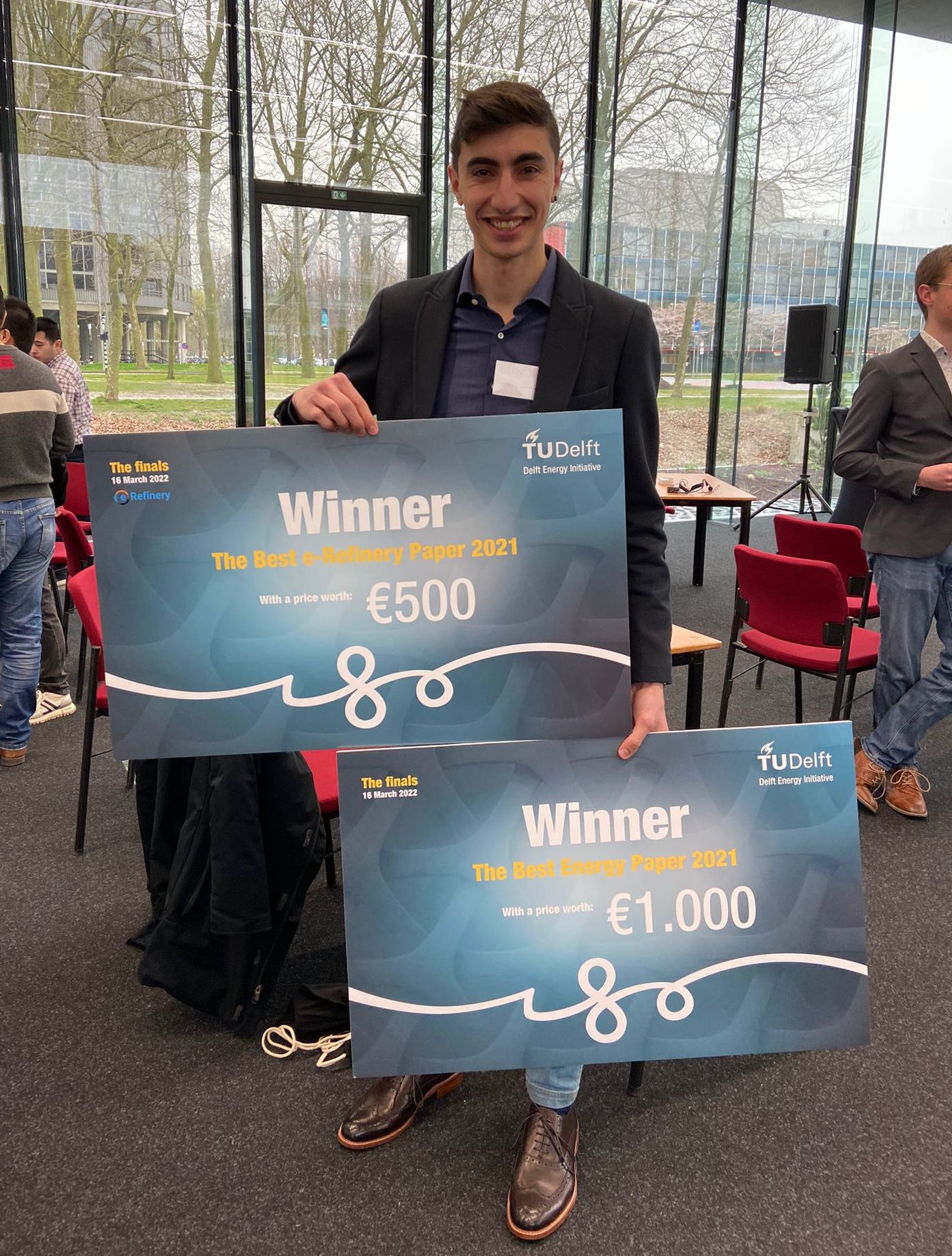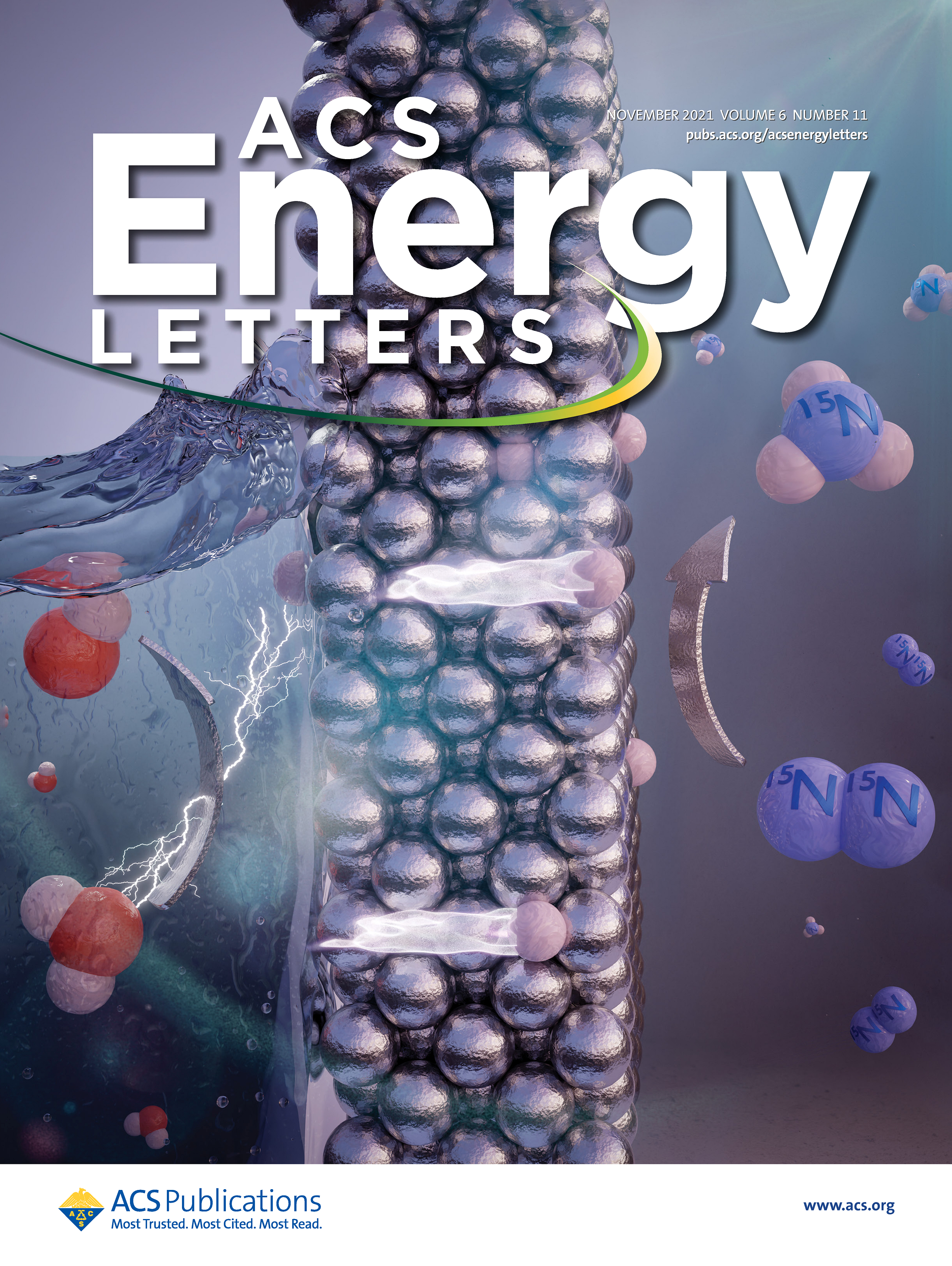Davide Ripepi wins Delft Best Energy Paper Award
On Wednesday 16 March, Davide Ripepi won the Delft Best Energy Paper Award after first winning the e-Refinery Best Energy Paper Award. This all took place at the Delft Best Paper Award Event.
The work is part of the big picture of the energy transition to fight climate change. In this perspective direct electrochemical nitrogen reduction holds the promise of enabling the production of carbon emission-free ammonia, which is an important intermediate in the fertilizer industry and a potential green high-density energy carrier (22.5 MJ/Kg).
The work of this paper is based from an intuition from Prof. Fokko Mulder, who initially came up with a strategy for direct electrolytic ammonia synthesis at ambient conditions, where the electrolyte and water reduction reaction are separated from the catalytic nitrogen activation and hydrogenation sites. The electrochemically generated atomic hydrogen is then selectively transported through the hydrogen permeable electrode and react with nitrogen to form ammonia.
Through the adoption of a hydrogen permeable electrode, Davide Ripepi and co-authors have demonstrated a novel strategy for direct electrolytic ammonia synthesis from N2, H2O, and renewable electricity at ambient conditions. The proposed system uses cheap and abundant materials.
The experiments revealed that adsorbed nitrogen on a polycrystalline Ni-surface does not react with gaseous H2, hindering the hydrogen spillover essential for the NH3 synthesis reaction. Nonetheless, NH3 synthesis was enabled upon atomic hydrogen permeation, showing that the hydrogenation of active nitrogen via permeating hydrogen circumvents the mutual competition between nitrogen and hydrogen activation. Their results indicate the occurrence of a Mars−van Krevelen dinitrogen activation mechanism, in which N-vacancies play a significant role in the catalytic processfacilitating N2 adsorption.
The award
The paper won first the Best e-Refinery paper 2021 award and then it competed with the other 4 TU Delft energy institute institutes (e-Refinery, PowerWeb, Urban Energy, Wind), to win the TU Delft Best Energy Paper 2021 award.
Quality of the work was highlighted by the extensive characterization and well supported analysis and experimental evidences.
Ripepi: "Originality of the work was a strong point since we worked on an unconventional electrochemical design.
For me it is a true honour to win this award as Best TU Delft Energy Paper 2021, also because in the competition there were so many very good works for all the TU Delft faculties.”
This award reflects all the hard work and dedication on a very challenging topic like nitrogen reduction to ammonia. Winning this award will probably attract more interest towards this very promising, yet challenging, reaction. Electrochemical ammonia synthesis is fast-growing emerging field, which could positively impact the transition towards a green ammonia energy system.
The work itself opens new directions towards the development for efficient electrochemical ammonia synthesis. A lot of work still need to be done to improve and to better understand the reaction.

